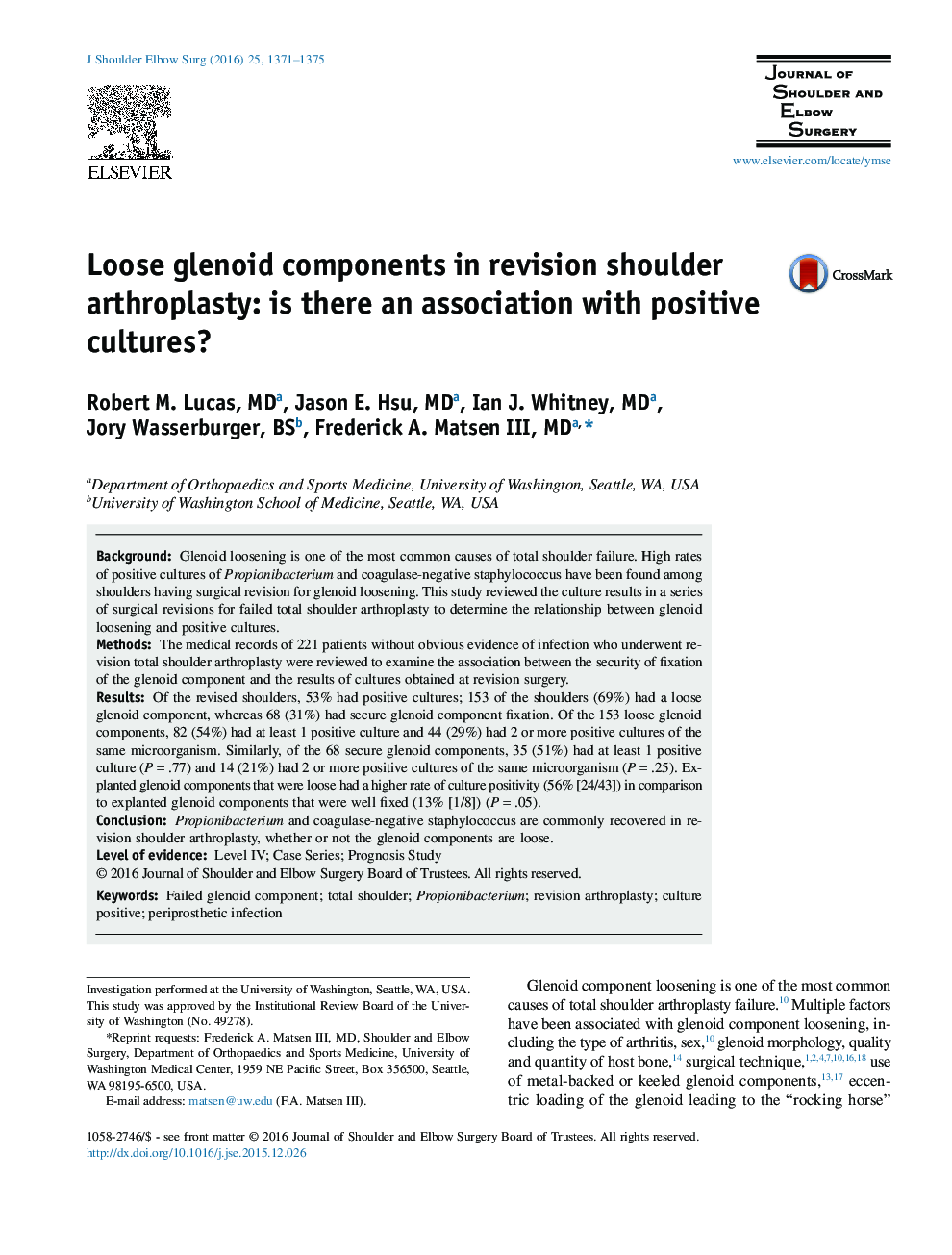| Article ID | Journal | Published Year | Pages | File Type |
|---|---|---|---|---|
| 4072814 | Journal of Shoulder and Elbow Surgery | 2016 | 5 Pages |
BackgroundGlenoid loosening is one of the most common causes of total shoulder failure. High rates of positive cultures of Propionibacterium and coagulase-negative staphylococcus have been found among shoulders having surgical revision for glenoid loosening. This study reviewed the culture results in a series of surgical revisions for failed total shoulder arthroplasty to determine the relationship between glenoid loosening and positive cultures.MethodsThe medical records of 221 patients without obvious evidence of infection who underwent revision total shoulder arthroplasty were reviewed to examine the association between the security of fixation of the glenoid component and the results of cultures obtained at revision surgery.ResultsOf the revised shoulders, 53% had positive cultures; 153 of the shoulders (69%) had a loose glenoid component, whereas 68 (31%) had secure glenoid component fixation. Of the 153 loose glenoid components, 82 (54%) had at least 1 positive culture and 44 (29%) had 2 or more positive cultures of the same microorganism. Similarly, of the 68 secure glenoid components, 35 (51%) had at least 1 positive culture (P = .77) and 14 (21%) had 2 or more positive cultures of the same microorganism (P = .25). Explanted glenoid components that were loose had a higher rate of culture positivity (56% [24/43]) in comparison to explanted glenoid components that were well fixed (13% [1/8]) (P = .05).ConclusionPropionibacterium and coagulase-negative staphylococcus are commonly recovered in revision shoulder arthroplasty, whether or not the glenoid components are loose.
